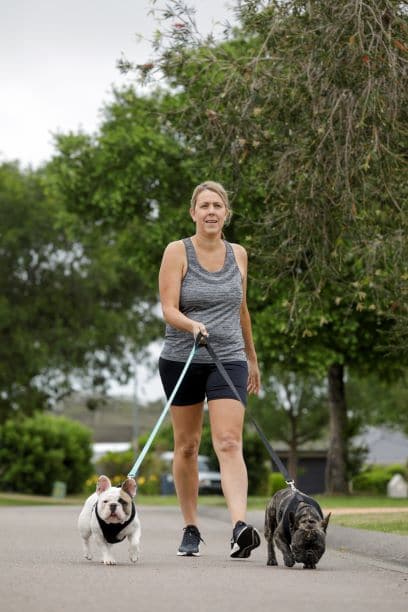Newcastle’s Jannene Cunningham was just 44-years-old when she suffered a stroke.
“I was at work at my desk and sent my colleague an email that didn’t make sense and she came to check on me,” she said.
“They called an ambulance and, in say 15 minutes, I was at the John Hunter [Hospital]- from there, I don’t remember.
“I was drooling, and thinking: ‘Why am I doing that?’”
“I didn’t collapse or anything, I walked down two flights of stairs to the ambulance and, when I was told to put my arms in the air, there was weakness on my left side.
“I saw the stroke team and the last thing I remember is waking up in recovery after a clot retrieval.”
It was 2 May 2019, and Ms Cunningham had been suffering with a headache and a sore leg.
Little did she know that there was a blood clot in her leg, which had travelled to her brain through an undiagnosed hole in her heart.
“I was at my fittest, running on the treadmill every day,” she said.
“I thought my sore leg was from running so much, but I should have gone to the doctor.”
Ms Cunningham admits, because of her age at the time, she didn’t consider she may be having a stroke.
“I think the scariest thing for me is that I was young, and at 44 you’re too young to have a stroke, but that’s not the case, young people have strokes as well as old people and we need to be aware of it.”
The left side of Ms Cunningham’s body has remained numb since the stroke and she can’t smile.
She hasn’t been able to return to her former job because of fatigue, but is working a few hours a week for her husband to try and rebuild her stamina.
Another way she’s working on getting stronger is by participating in this month’s Stride4Stroke.
Stride4Stroke is the Stroke Foundation’s signature event, which encourages the community to get active during the month of November and raise money to help prevent, treat and beat stroke, which is one of Australia’s biggest killers and a leading cause of disability.
More than 80% of strokes are preventable, through managing blood pressure and cholesterol, eating healthily, exercising and not smoking.
To do her part, Ms Cunningham is walking 150 kilometres in total, tackling five kilometres per day.
“I wanted to raise money and awareness that not just old people that have a stroke, it’s not always someone in their 70s and 80s,” she said.
Stroke Foundation Chief Executive Officer, Sharon McGowan, said the COVID-19 pandemic brought many challenges which had impacted our lives and ability to maintain good health and therefore reduce our stroke risk.
“I am a regular runner and have found it much harder to maintain my exercise routine without a fun run event goal to motivate me,” she said.
“I also know that I am not alone in reaching for comfort food more regularly during the pandemic.”
Every dollar raised through Stride4Stroke will go towards vital Stroke Foundation programs, like the free telephone advice service StrokeLine (1800 787 653) and EnableMe, online support services which help survivors and their families transition to life back home after stroke and throughout the recovery journey.






